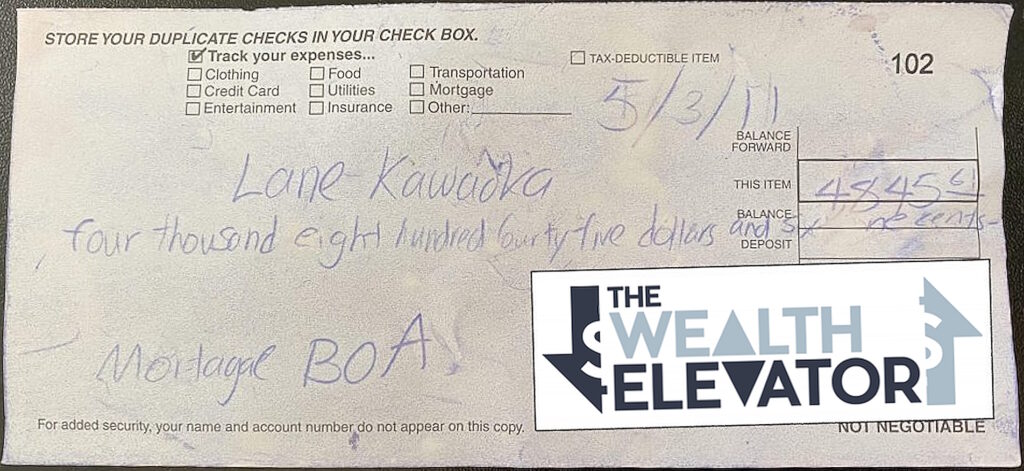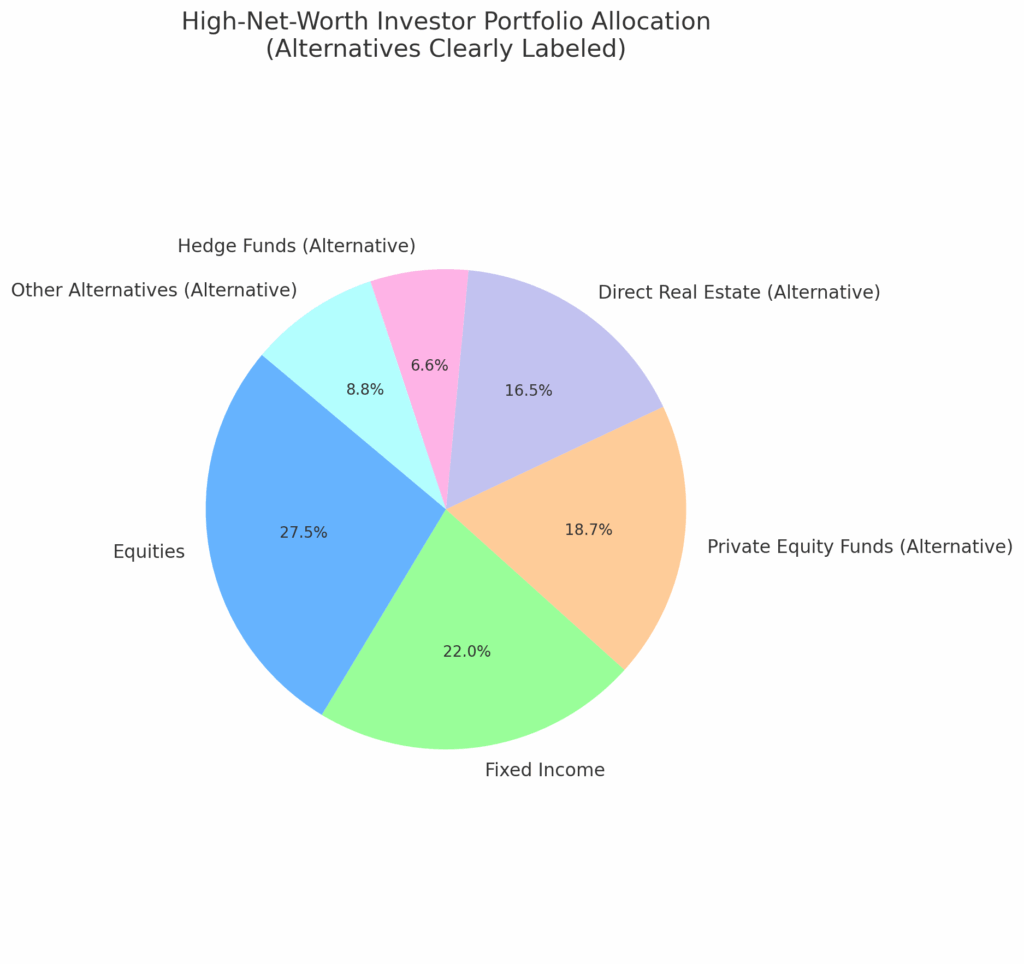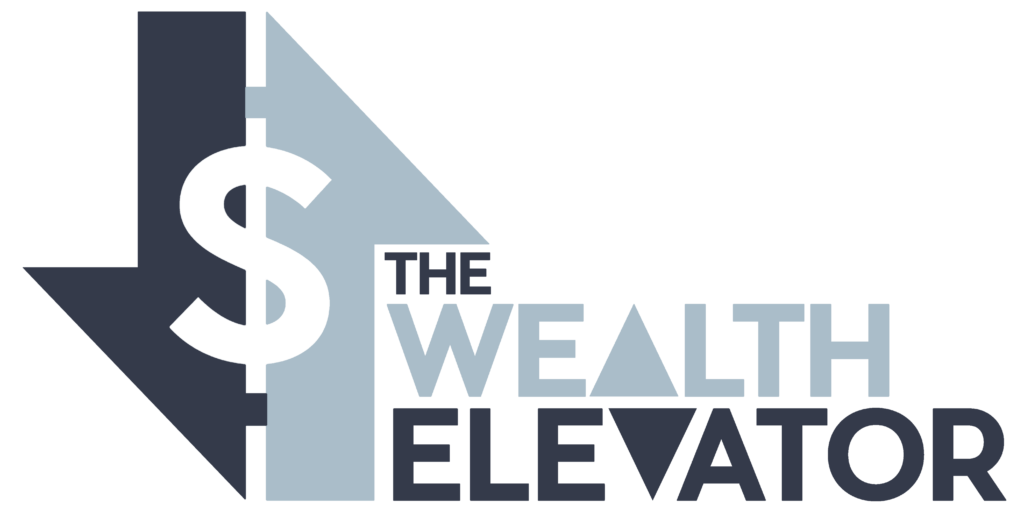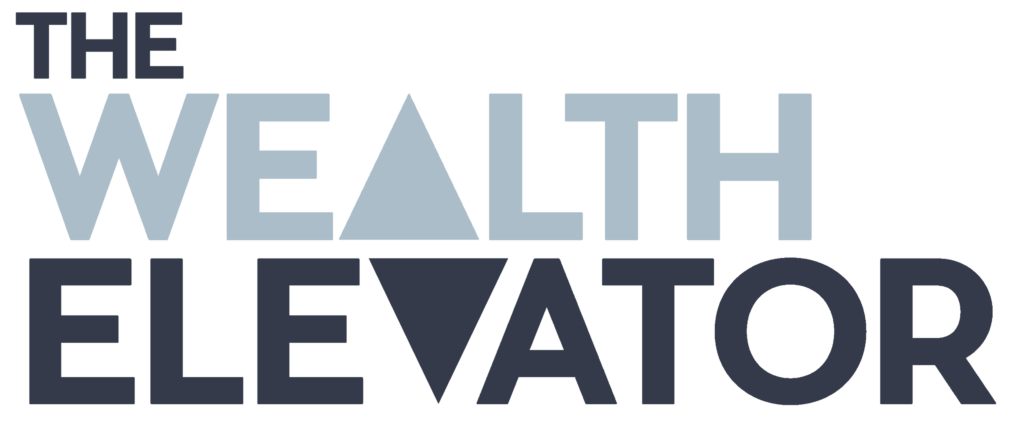

The Wealth Elevator Masterclass covers a comprehensive list of essential topics, equipping you to maximize your passive income. Lane Kawaoka, former public engineer turned multi-billion dollar fund manager, guides you through the ins-and-outs of how the wealthy invest and manage their money.
Join our network of passive accredited investors and gain access to the Masterclass, as well as our other investing courses!
paid out
(Contributing > $50k)





welcome to the Wealth Elevator community!
my name is Lane Kawaoka

I used to be an Engineer at a day job I did not like and I thought there was more to life, as many of us high-paid professionals think in our tribe. I used rental real estate as my means to financial freedom and I’m curating the content on this website, and our investor education eCourses, so others like you can do the same!
The Wealth Elevator is designed to help you conceptualize the steps and milestones on your investing journey. Check out my new book for an in-depth look at the “floors” you’ll be stopping off at along the way, and a breakdown of essential tools and strategies for continuing your upward progress!
From 2009-2013, as I was buying rentals on my own I definitely made my share of mistakes. One of these was to paying down my mortgage (debt). Here is one of those checks where I paid down my debt. Little did I know that sophisticated investors don’t do this…
I used to be an Engineer at a day job I did not like and I thought there was more to life, as many of us high-paid professionals think in our tribe. I used rental real estate as my means to financial freedom and I’m curating the content on this website, and our investor education eCourses, so others like you can do the same!
The Wealth Elevator is designed to help you conceptualize the steps and milestones on your investing journey. Check out my new book for an in-depth look at the “floors” you’ll be stopping off at along the way, and a breakdown of essential tools and strategies for continuing your upward progress!
From 2009-2013, as I was buying rentals on my own I definitely made my share of mistakes. One of these was to paying down my mortgage (debt). Here is one of those checks where I paid down my debt. Little did I know that sophisticated investors don’t do this…

Lane Kawaoka
CEO, The Wealth Elevator
I may have been beating the drum of the turnkey rental a few years ago, but now I’m investing in syndications (turnkey rentals are not passive and still a P.I.T.A.). I am admittedly a work in progress and this blog/podcast is my journey.
Mainstream investing (401K, stocks, mutual funds, 529, IRA, or anything retail) is based on investing for appreciation. You know buy-low-sell-high… usually based on factors wholly outside an investor’s control. Then one day (when you are grey and immobile) retire and live off your nest egg at 4% withdrawal rate.
We (sophisticated investors) call this gambling, not investing.
in·vest / verb
— to put money to use in something offering potential profitable returns, as interest, income, or appreciation in value.
gam·ble / verb
— play games of chance for money; bet.
Our private investor group invests off of the following:
- Proven Operators.
- Proven Markets.
- Proven Demand.
- Invest for Income.
- Invest for Growth.
- Tangible Asset.
- Low Correlation to Wall Street.
“Buy-low-sell-high” trading mentality encourages the churning of holdings… which generates commissions and short-term capital gain taxes. Which is another reason why we do not like commission-based Financial Planners or Registered Agents. Some of these guys use hard-selling techniques. If they make enough phone calls, eventually they get someone to purchase a stock and make their commission.
“Wall Street is the only place that people ride to in a Rolls-Royce… to get advice from those who take the subway.” — Warren Buffet
In case you have not seen this whole financial world is an engineered system by Wall Street firms and the government which protects them, to prevent Main Street investors from building enough passive retirement income in your 30s/40s as opposed to your 70’s. The mainstream financial news never talks about yields coming from cashflow (that is, income minus expenses). Discussions focus in the context of share prices, which is pattering you to think “buy-low-sell-high.” Churn and cha-ching for those executing transitions in the industry. And for most people who are confused and frozen, that’s why there is a hidden “asset management fee” which is an above-the-line expense to you.
“We know what is going to happen if you keep investing in the same old stocks/mutual funds/bonds… you will keep working at your job with a lackluster retirement in 40-50 years. Invest in real estate for cashflow is a proven way that I created my pension today and allowed me to retire before I hit the age of 34. Do the math… the numbers don’t lie… people do.” — Lane Kawaoka
The secret… Is not about appreciation, but cashflow. Creating multiple mini-pensions today, as opposed to hoping and praying you have enough to deplete from during your dying days.


The Wealth Elevator system, as described in our comprehensive investor education courses, stands out from other financial programs through its structured, multi-level approach to wealth building, tailored guidance, and emphasis on community. Here are the key differentiators:
Structured Three-Step System: The program is divided into distinct steps, each targeting different aspects of wealth building:
Step One: Focuses on syndicated deals, offering an alternative to traditional investments like 401k plans, and introducing clients to alternative investment opportunities.
Step Two: Centers around unlocking passive losses, revealing tax strategies used by the wealthy to significantly reduce tax bills.
Step Three: Involves mastery of infinite banking, enabling clients to make money in two places at once.
Personal Journey from Start to Scale: The program’s creator shares their personal journey from buying small rental properties to managing over $2.1 billion in assets, providing a relatable and inspiring roadmap for clients.
Level-Based Approach Reflecting Individual Progress: The Wealth Elevator introduces the concept of different ‘floors’ in wealth building, each representing a stage in the financial journey, from starting out to reaching high net worth status.
Emphasis on Community and Networking: The program fosters a sense of community among passive accredited investors, offering an investor club for networking and shared learning experiences.
Tailored Guidance for Different Net Worth Levels: Specialized advice and resources are provided for individuals at different stages of their financial journey, whether they are just starting out or are high net worth individuals.
Focus on Education and Actionable Content: The Wealth Elevator emphasizes education through free courses, e-courses, and member websites, moving away from the traditional blog format to more interactive and user-friendly learning methods.
Adaptation to Changing Media Consumption Trends: Recognizing the shift in media consumption, the program adapts by offering concise, easy-to-digest content suitable for busy professionals.
Responsive and Personalized Support: The program offers direct contact options, including phone calls and personalized email addresses, for immediate and tailored support.
Rebranding to Reflect Evolving Concepts: The shift from ‘Simple Passive Cashflow’ to ‘The Wealth Elevator’ represents a more mature and holistic approach to wealth building, aligning with the program’s evolving methodologies.
Commitment to Continuous Improvement: The program shows a dedication to evolving and improving based on community feedback and the changing financial landscape.
Overall, The Wealth Elevator is designed to guide your passive investing journey through its structured approach, community focus, personalized guidance for different wealth stages, and a commitment to adapting to the needs of modern investors.
how do we emulate wealthy families?
I’m not a Certified Financial Planner and not giving you financial advice — which is probably a good thing. Otherwise, I’d have to charge you a fee for stating the obvious… and then funnel you into a bunch of financial products that just so happen to pay me juicy commissions.
But it will state the facts…
Most people are told to stick with a simple 60/40 portfolio: 60% stocks, 40% bonds. But the wealthiest families don’t follow that advice. According to a report from J.P. Morgan Private Bank, the top 200 families they serve invest nearly half of their portfolios (46%) into private, alternative assets — private equity, real estate, hedge funds, and private credit.
Here’s what that really looks like:


This is a very different playbook than what most investors follow — and it’s one reason the wealthy get wealthier. By allocating a large portion to private assets, they gain:
Access to more consistent cash flow
Stronger downside protection
Greater tax efficiency
Exposure to real assets and uncorrelated returns
At The Wealth Elevator, we’re here to help you unlock these same strategies — even if you’re just getting started. Whether you’re moving beyond rental properties or exploring private placements for the first time, we’ll help you shift from Wall Street to Main Street with confidence.





